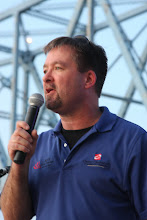I've seen liberal columnists like Robert Reich essentially "demand" that U.S. companies with rich cash reserves start hiring. Those same people who blame companies for not hiring are many times also the first to support policies that have a chilling effect on hiring. Let me count three examples:
 1) Healthcare reform: Out of the news for the most part lately, but implementation dates of the plan in the next few years still have business and industry nervous. Starting in 2014, businesses with 50+ employees must provide healthcare coverage or pay fines. I know of at least one business with 47 employees in two locations who'd like to open a third but won't because of this predicament.
1) Healthcare reform: Out of the news for the most part lately, but implementation dates of the plan in the next few years still have business and industry nervous. Starting in 2014, businesses with 50+ employees must provide healthcare coverage or pay fines. I know of at least one business with 47 employees in two locations who'd like to open a third but won't because of this predicament.
2) Continued EPA advocacy: Coal-fired power plants in the midwest are in the crosshairs of the EPA. This promises increased electric rates for much of the country. For industry, it will cost millions.
3) Union activities: President Obama was not able to get legislation designed to make it easier to unionize America through Congress. Now, the National Labor Relations Board is proposing changes that are clearly designed to handcuff business and industry's ability to communicate with its own employees during a union organizing effort.
It's no different than refusing to water a garden but expecting a bumper crop. You can't beat up on the job creators and expect them to go on a hiring frenzy. Taxes are always an issue to business and industry, but regulation and red tape is strangling American enterprise and job creation. It's that simple.




